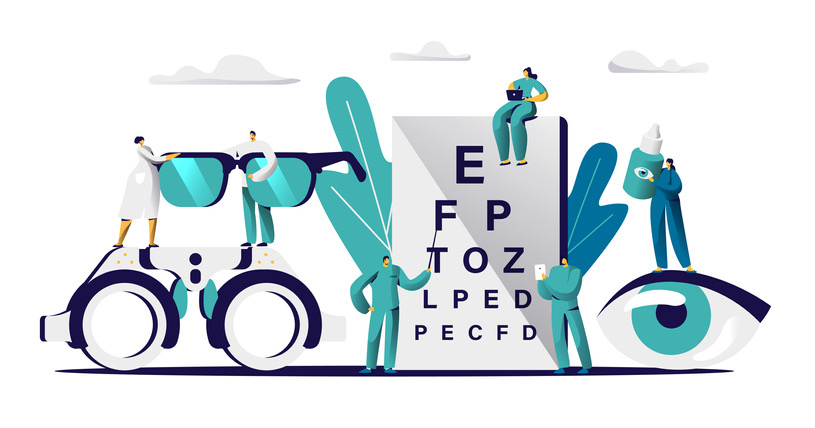More than Meets the Eye: The Eye-Mind Connection
 By Kira Wang
By Kira Wang
What is the link between vision loss and mental health outcomes, and how can eye exams tell us what is going on in the brain and the body?
You may have heard that the eyes are the window to the soul – is there any truth to this? It turns out that sight is not only tied to mental health but that our eyes also give us a literal window into what is happening inside our bodies. This means regular eye exams are even more important than one might think, since they can help people with diabetes catch signs of other health challenges early on.
Diabetes-related eye complications can damage our physical and psychological well-being. In a 10-year study of nearly 96,000 adults, researchers discovered that people with diabetes-related retinopathy had higher rates of depression than people with diabetes who did not have eye disease. These findings suggest that losing our ability to see is deeply and emotionally challenging.
Even the idea of vision loss can be frightening: a 2016 international survey discovered that 85% of people feared losing vision more than any other sense. Despite this fear, only 33% of respondents reported having an eye exam each year. Given that people with diabetes are more at risk for certain eye diseases, seeing an eye-care professional consistently will help diagnose and treat any problems early on. Learn more about the importance of eye screenings here.
In a dilated eye exam, your provider will be able to look inside your eye at your retina and optic nerve. Interestingly, the retina develops from the same tissue as the brain, and the optic nerve physically connects the eye and the brain. As a result, the eye can give insight into what may be happening in your brain and body. Recent studies suggest that images of the retina can be used to detect multiple sclerosis and other conditions like schizophrenia; it may even be possible to detect early signs of Alzheimer’s. A vision test can also be used to diagnose brain injury and mild concussions.
Painless, non-invasive eye exams have the power to help your eyes, but also your mind and body. The most important thing to remember is that finding health issues early on can help prevent their progression, allowing you to live your life the way you want.
If you are an eye-care professional, the American Academy of Ophthalmology suggests that all ophthalmologists offer people information about vision rehabilitation services. These services can help individuals access education and psychological support if they are losing their sight, and it can give them hope. Given many people’s fear of vision loss, eye-care professionals should talk to people about their concerns and how they are doing; they should also consider sharing a list of counseling and educational resources, like this one.
We hope that Healthy Vision month is helping you see the importance of eye care. For a few tips on taking care of your eyes, check out our eight strategies for healthy vision.







